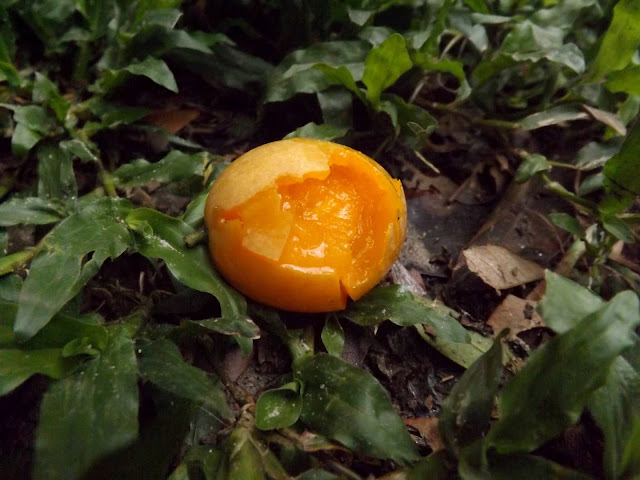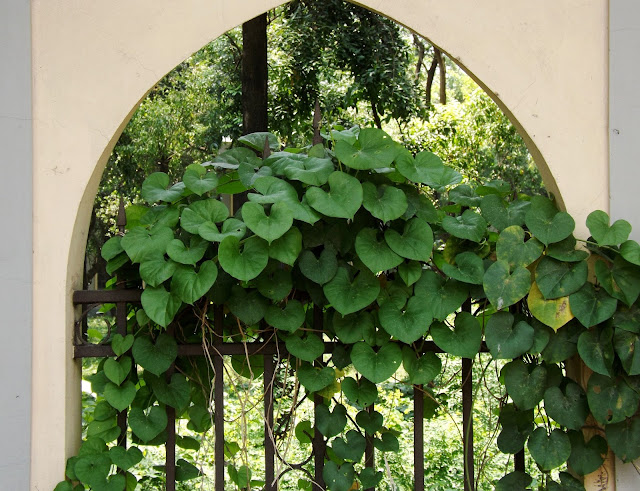Maila aam or Burmese Plum, Bouea oppositifolia
Maila aam or Burmese Plum (Bouea oppositifolia, family: Anacardiaceae) is a large evergreen tree with dense canopy and shortened trunk, almost similar characteristics of Mango. Trunk is huge and cylindrical. Bark is dark grey. New shoots are slightly hairy. It can get a height about 30 m. The is found only the Southeastern part of Asia. In Bangladesh it is found in the forests of Chottogram and Chottogram Hill Tracts. It is marked as a rare tree. Several of its trees are preserved in Ramna Park, Dhaka.
Common names: Mailla aam, Moilla aam, Moya aam, Miri aam, Bellum, Bhallam (Bang); Marian Plum (Eng).
Leaves are scented, simple, entire, dark green, look alike Mango, but much smaller and narrower than that; lanceolate, 8-20 cm long and 3-6 cm wide, pointed at the end, opposite; petiole 1-3 cm long.
Flowers appear in terminal inflorescence, 8-12 cm long. Florets are tiny, brownish color, petals 4. Flowering occurs in end of winter.
Fruit is drupe, ovoid or round, 3-5 cm long and 2-3 cm in diameter. Raw fruit is green and ripe is bright yellow. Scented fruit is edible, tastes truly sour with the mix of slightly sweetness. Fruit matues in the begining of summer. The tree is propagated by seeds.
Ripe fruits are eaten by local people. Green fruits are also used in cooking. Wood is useful for various purposes. The large and long-living tree is suitable for planting in parks and beside the roads and highways. By the by, Many people confuse it with Uri aam (Mangifera sylvatica) which is a complete different tree.
Synonyms: Bouea angustifolia, Bouea brandisiana, Bouea burmanica, Bouea burmanica var. kurzii, Bouea burmanica var. microphylla, Bouea burmanica var. roxburghii, Bouea diversifolia, Bouea gandaria, Bouea microphylla, Bouea myrsinoides, Cambessedea oppositifolia, Haplospondias brandisiana, Manga acida, Mangifera oppositifolia






Bangladesh kothai pabo?
ReplyDelete